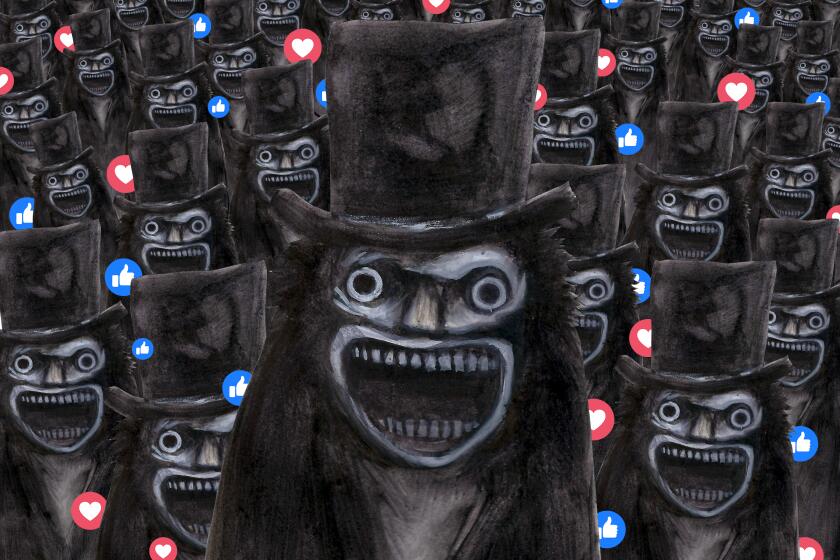Art House Flame Flickers Out
Meyer Ackerman considered two films for the final weekend, after 34 years, at the Scarsdale Fine Arts Cinema: “The Last Picture Show,” naturally, and “Cinema Paradiso,” a Sicilian filmmaker’s childhood memories of his village’s small theater, which is demolished at the end.
“They both deal with the end of a picture theater, but between the two we leaned one way because ‘Cinema Paradiso’ happened to be Italian and this was mostly a foreignlanguage house,” Ackerman said. “Plus, when we played it the first time it played for 15 weeks.”
That 1989 run was nothing, however, compared with the 86 weeks that “The Gods Must Be Crazy” ran at his historic 68th Street Playhouse down in Manhattan. That theater, which once hosted vaudeville shows and silent movies, closed a decade ago after the landlord found another tenant willing to pay triple the rent.
Though Ackerman owned commercial theaters too over the last 45 years, even some multiplexes, his trademark was the single-screen art house, of which he had close to 10, including the Carnegie Hall Cinema, the Lincoln Arts and one in Soho.
“Yeah, this is the last one,” he said of the Scarsdale Fine Arts Cinema in suburban Westchester County, which is going the same way for the same reason, real estate. His landlords here have a piece of the theater, but there was only so long they too could turn down more lucrative uses for the space on busy Central Avenue.
These days it’s easy to get sentimental, preachy or bitter when an old-fashioned small business shuts its doors, whether it’s a movie theater, neighborhood book shop or family-owned drugstore. But Ackerman was allowing none of that mush when it came to the last weekend at his last movie house.
“It’s like they say in ‘A Chorus Line,’ ” he explained. “ ‘Won’t forget, can’t regret, what I did for love.’ ”
*
The 350-seat theater was hardly the first in suburbia to show art films, but the ones that did tended to be existing theaters converted to a format of Fellini or De Sica. Ackerman said he and his partners in the venture -- Arthur and Bob Tolchin, a father and son -- believed they may have been the first in suburbia “to build one expressly from the ground up as an art theater, to have the trappings and style and feel of an East Side art theater, the site lines, the space, the simplicity.” It was at the north end of a small shopping plaza with a Scarsdale address, and though not actually in that affluent village, it made business sense to use the well-known name. The younger Tolchin donned a tuxedo to serve as manager their opening weeks in 1972, when they debuted with “The Ruling Class,” starring Peter O’Toole. Ackerman’s own teenage son, Brian, took less lofty jobs in their early years, behind the concession counter and as an usher.
Ackerman’s wife, Marilyn, got in the act as well, when she founded what they believed was the first theater club of its type in the country. Using a formula since widely copied, it met Sunday mornings over free coffee and danish and offered the opportunity to see films not yet shown to commercial audiences “and some that would never open, probably,” she said. Their Westchester Film Club started with 100 members, then was selling out in two years and eventually expanded to Saturday mornings too.
Two days before the closing weekend, Marilyn Ackerman dug through her old records to find their first flier promising “Seven Sunday Mornings of Internationally Acclaimed Films,” starting with Francesco Rosi’s “Three Brothers.” Despite the promise of acclaimed films, not all turned out that way, she conceded. “ ‘Tristan and Isolde’ starring Richard Burton was not much of anything,” she said, of the film released as “Lovespell.” But it still was an experience to see such movies before the professional critics had at them, so that “you have to know without anyone telling you what you think of this.”
The longest run at the Fine Arts was 24 weeks, for Roberto Benigni’s “Life Is Beautiful,” which won three Oscars in 1998. But by then, mainstream multiplexes also were running such pictures, and single-screen theaters, if they wanted to survive, were being divided into two or three smaller spaces.
Onetime usher Brian Ackerman, now 48, works at the modern version of the art theater: the three-screen Jacob Burns Film Center in Pleasantville, 20 miles north of here. It’s a nonprofit organization as much into education as entertainment, playing host to thousands of schoolchildren each year and staging nights for prominent filmmakers to discuss their work. To meets its budget, the Jacob Burns depends less on ticket sales than its 7,000 members and has a board that includes film critic Janet Maslin and director Jonathan Demme.
“It’s a very, very different model,” says the younger Ackerman, who jokes that the Fine Arts “in its own way became a nonprofit in recent years. But it was cheap enough to survive without making money.”
As for its closing, “it’s a surprise to the community -- it’s a shock to them. But behind the scenes we’ve know the industry hasn’t been favorable to a single screen in 20 years,” he said.
Whereas his father was the expert on what movies to book, the Tolchins supervised the day-to-day management of the Fine Arts and several other theaters around Westchester County that the partnership developed and sold.
In fact, this one “made a very nice income for all of us for many, many years,” said Bob Tolchin, 67. But he too said, “I don’t think it was ever really a business. That’s why, when we sold all our other theaters, we didn’t sell the Fine Arts.”
He guesses that a clothing or furniture store, or something like a Crate & Barrel, will wind up in their space in the shopping strip whose other end is anchored by a California Pizza Kitchen.
Bob Tolchin’s father is no longer alive, so he and Ackerman plotted out the low-key goodbye. Employees were notified two weeks ago, and then the theater’s call-in phone line began inviting patrons to come for free this past weekend to see the Italian tribute to the small local theater.
“Meyer and I felt, ‘We’re not going to have a party.’ We decided that we would do ‘Cinema Paradiso’ and have everyone be our guests. We’re just going to close the doors and have the marquee say, ‘It’s Been a Great 34 Years.”
Thursday night, the marquee continued to advertise the last film they charged for, “Little Miss Sunshine,” but a ladder was ready to make the change by Friday morning. “Meyer is taking it well, but I know that underneath a little bit of him is going away,” Tolchin said.
Meyer Ackerman, who declined to give his age, insisted that he was not leaving the film world behind. He’s been working on a documentary on a topic he won’t reveal (“It’s not finished yet”) and hopes to complete his life story, “Memoirs of an Exhibitionist,” even if, like some of the films he has shown, it has a limited audience.
*
With such short notice, only a few dozen enthusiasts showed up Saturday afternoon for the first free showing of “Cinema Paradiso,” but there was an ad hoc party in the lobby, where 10 young part-time employees gathered around the refreshment counter. “We’ll have plenty more people later on,” predicted Danielle Catalano, 23, the theater’s manager the last two years.
Still, Catalano did not think the young theater crew, many still teenagers, would pop in and watch the subtitled Italian film themselves. They have enjoyed some of the Fine Arts’ offerings, she said, including “Little Miss Sunshine,” about a family of oddballs who head off for a bizarre beauty pageant for young girls.
“But, you know, a lot of times the stuff they show here,” she said, “it’s artsy foreign films.”
By Sunday, the crowd indeed had grown, to 150 for the afternoon show. Meyer Ackerman had not planned to come, but there he was with wife, son and grandson, sharing hugs with some of the people in the line that snaked around the corner outside the theater waiting for the evening show, the finale.
“I got him to come,” said son Brian.
“You really should say something before the last show,” pleaded wife Marilyn.
“No,” said Ackerman. “I’ve said it all for 34 years.”
More to Read
Only good movies
Get the Indie Focus newsletter, Mark Olsen's weekly guide to the world of cinema.
You may occasionally receive promotional content from the Los Angeles Times.








